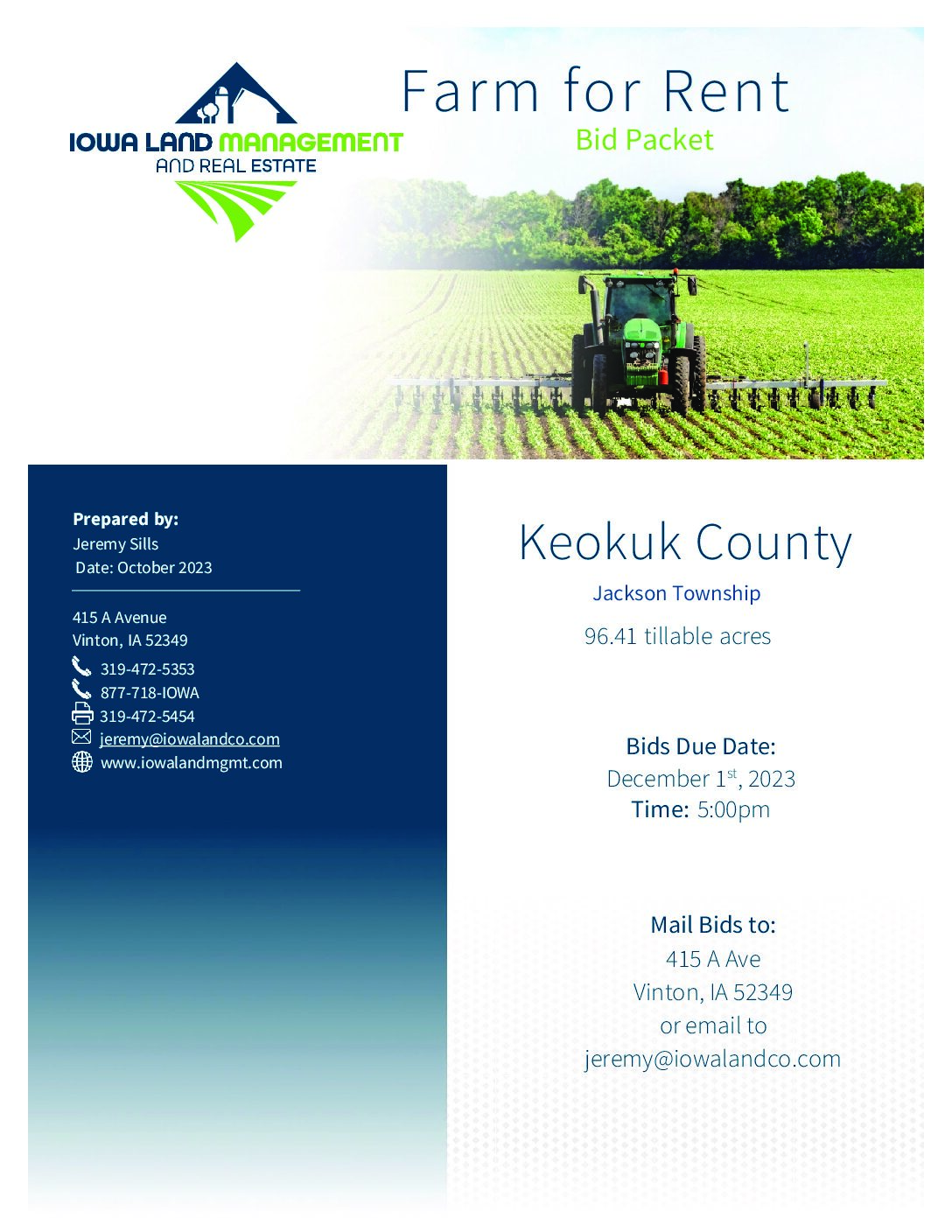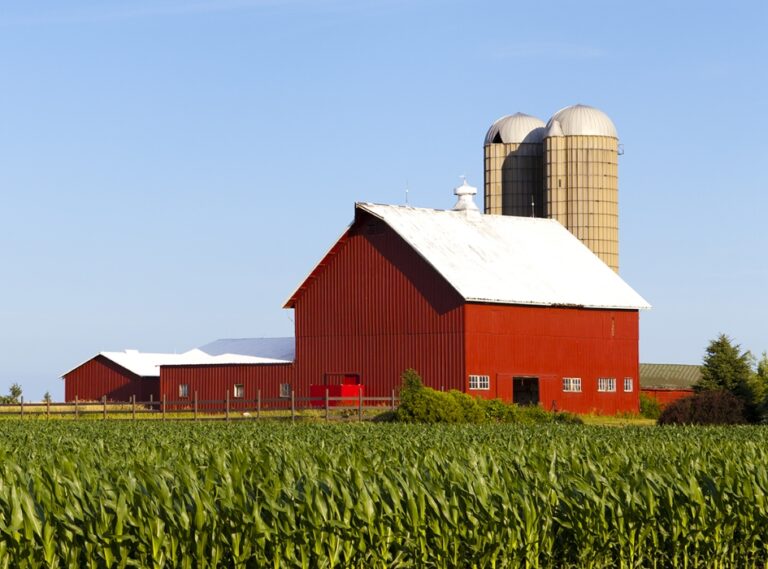

Farm Management
Today, a “good 80” is worth over a million dollars! It returns an annual income that we call a “cash on cash” return. Generally, that will run from 2 to 3%. In addition, you have the annual appreciation or depreciation that’s occurring. Also, the investment has to be protected from the elements as erosion can quickly damage property.
Annual crop takings remove nutrients that need to be monitored and replaced. Governmental compliance with rules and regulations are needed at every turn it seems. Building and waterway maintenance is needed regularly. Property taxes and insurance have to be paid and kept current.
Many times it’s in the best interest of the farm to have a third party looking after things. People who are close to the operation and /or operator, sometimes have a little difficulty with lease negotiations or finding a more suitable tenant.
What makes a good farm manager?
A good farm manager has the ability to keep your interest ahead of the tenant while still being fair with them. Representing your interest in negotiations with tenants, and work with federal agencies, is paramount. We know we’re doing a good job as we have past and present tenants now visiting with us about managing their land when they retire!
A good farm manager is a great communicator! Keeping you informed on your farming operation is very important. Monthly or quarterly, depending upon your desire, we send you an accounting of all the transactions in your farm account. At year end, you’ll receive a complete accounting for the year that you can take directly to your tax preparer. Personal visits or phone contacts occur regularly.
A good farm manager has the ability to determine what’s important and relevant to your farming operation. Doing so keeps the operation running smoothly. The financial well being, while practicing good soil conservation practices, is truly a big part of a good manager.
Lease Expertise
As part of the farm management plan that is prepared, recommendations are made as to the type of lease that best fits the operation. This recommendation incorporates the client’s goals and objectives as they relate to the type of farm the client has. Obviously, the final decision as to the lease type is the client’s.
Straight cash lease rates are determined from “the market.“ Setting cash rental rates on Iowa farmland is done by the producers by the rents they offer. The objective is to lease the property for every penny it’s worth…not a penny more or a penny less than the “market rent.”
The first objective of management is to make farm ownership more rewarding for the client. The company strives to quickly achieve, and then maintain, maximum returns to the operation while utilizing proper animal and agronomic husbandry practices. The image of the farm in the community is paramount when considering the practices to be used.
There are many types of leases used in Iand management today. They vary as to the amount of reward vs. risk. That said, risk is better managed each year with the risk tools that are available in today’s production agriculture business.
The company currently has in place “straight cash leases,” crop-share leases, custom arrangements, and many forms of “flex” leases. We are the originator of the “Conservation Farm Lease.”

Strong attention is paid to:
- The awareness of client’s goals and objectives in owning farm property
- Encouraging farm clients to annually tour the farm
- Supplying monthly narrative reports with applicable news and comment
- Reviewing lease types and cash flow analysis with the client
- Detailed work with federal agencies to determine the best practices
- Rewarding soil and water conservation practices
- Timely grain marketing where applicable
All of these issues are addressed in the farm management plan, a report prepared for the client when the farm is put under management.
Contact usFeatured Properties
Iowa Land Management & Real Estate, based in Vinton, Iowa has been proudly serving farmers, property owners, buyers and the community for over 40 years.

